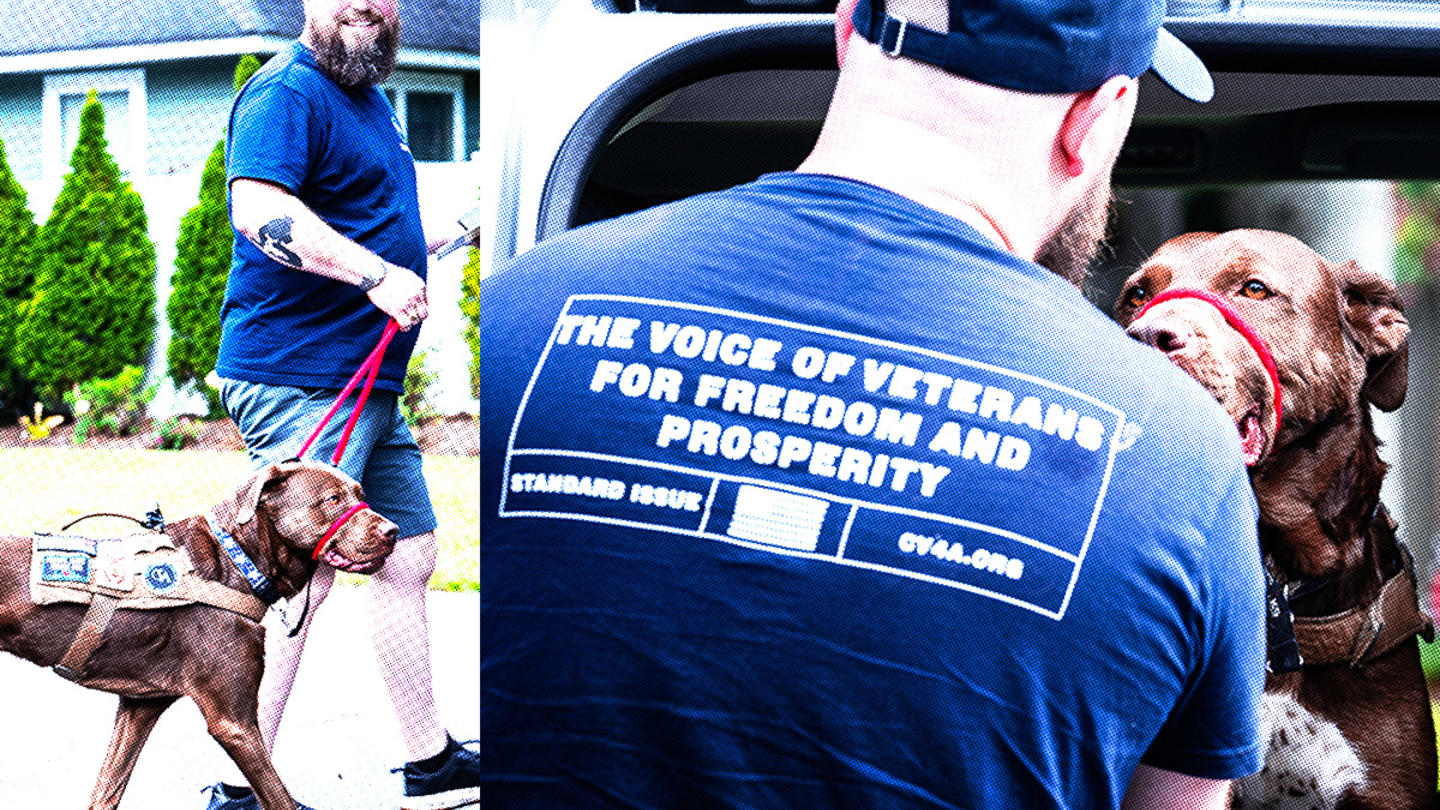On a hot August day in Myrtle Beach, South Carolina, Ian Robinson is on a mission. He’s weaving through neighborhoods on foot, connecting directly with veteran voters — asking how they feel about the state of the country and what issues are most important to them.
Robinson’s work through Concerned Veterans for America takes him all over the country, where he canvasses cities and towns talking to veterans and holding events to get vets involved in their communities.
Buddy, Robinson’s service dog, is always along for the ride.
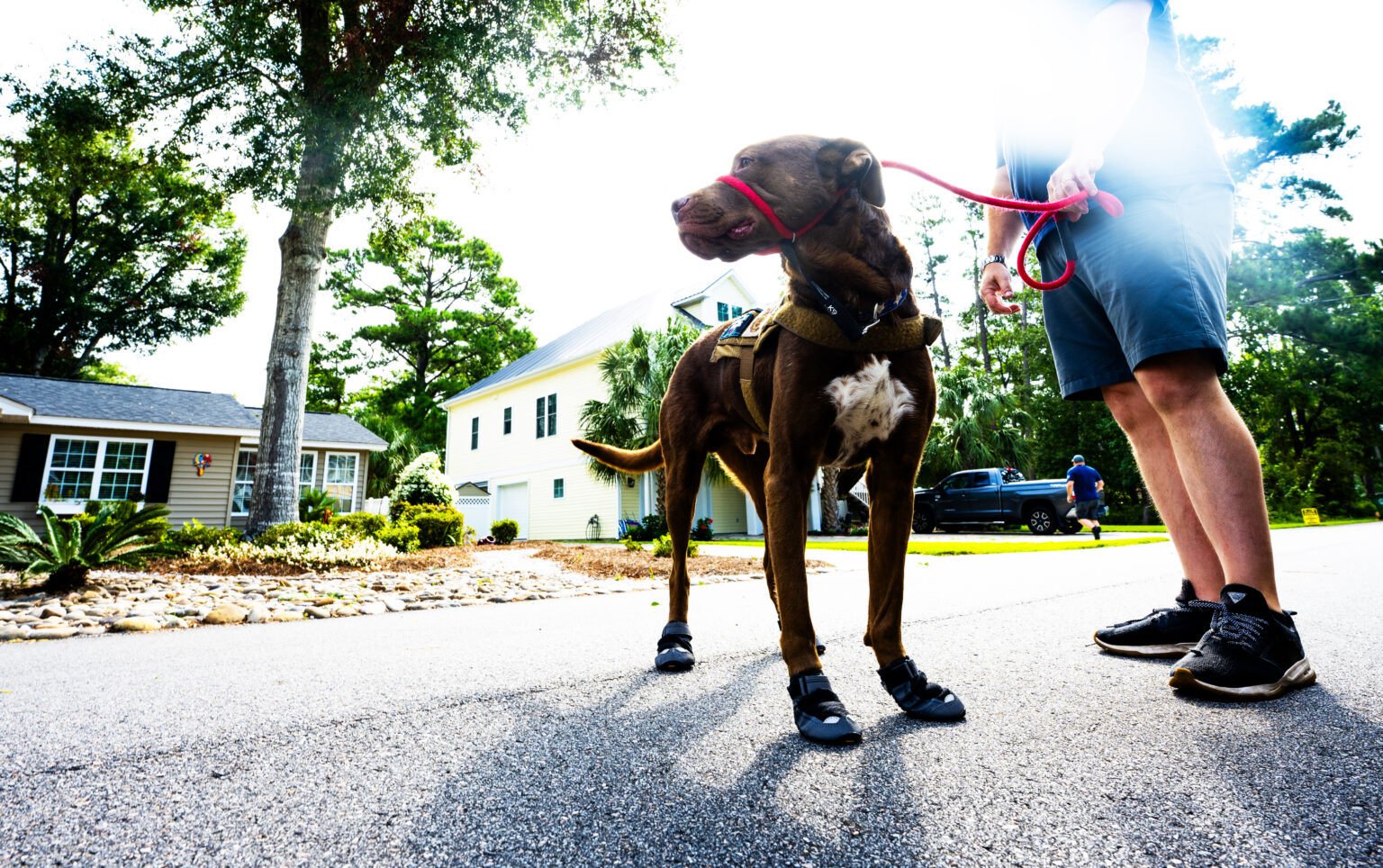
Robinson and Buddy have been side-by-side for three years. Buddy is not just a companion. He’s a highly trained service dog that provides medical alerts and PTSD care daily. “Buddy has saved my life more than once,” Robinson says. “He’s an inspiration to most everyone he meets.”
Just a few years ago, this walk through a quiet South Carolina neighborhood to advocate for veterans might not have been possible.
After 9/11, his Middle East combat tour left Robinson with PTSD
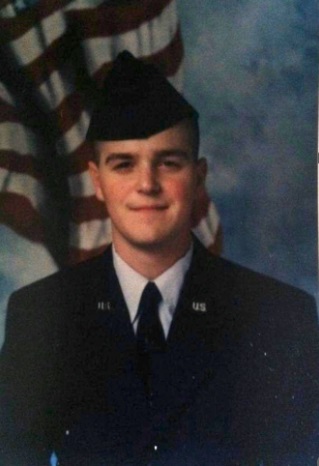
Robinson joined the Air Force in 1998, and like many, his military career was irrevocably altered by September 11. What once might have been a quiet few years of service now included combat tours to the Middle East.
“I spent the first six years as a crew chief working around F-16s,” Robinson explains. “During that time, I deployed to Iraq, Afghanistan, Turkey, Saudi Arabia, all over.”
As a crew chief, Robinson experienced several traumatic events that affected his mental and even physical health after service, including one particular experience he recalls clearly years later.
“My jet came back with a live unexploded ordnance stuck in it and the plane was on fire,” Robinson remembers. “We ended up getting the pilot out and he survived, but a few of the firefighters and crew chiefs lost their lives in the process.”
Robinson severely injured his knee during the chaos. In the hospital, he started to process and feel the effects of post-traumatic stress disorder.
“I didn’t realize that I had PTSD at first,” Robinson says. “When I got out of the hospital, I was having a lot of bad dreams and was hypervigilant about things. I was also bordering on a pain medication dependency problem.”
The experiences were going to get worse before they got better.
Sign up for the Stand Together newsletter and get stories, ideas, and advice from changemakers to help you tackle America’s biggest problems.
Robinson’s PTSD worsened — then Rocket entered the picture
Robinson was taken off the flight line and commissioned as an intel officer helping to train dogs for the Afghan and Iraqi forces working alongside security forces in a counter IED task force.
“At that time, I thought this was a really good deal, working with the dogs,” Robinson remembers. “That was until I was sent to Iraq and Afghanistan doing dog patrol with a squad of Marines. I saw a lot of people lose their lives.”
Those sights and experiences compounded the mental health struggles Robinson faced. “PTSD is kind of this cloud over everything you do,” Robinson said. “I was wrestling things in my sleep, trying to cope on my own with drinking.”
In the midst of this struggle, Robinson got his first civilian dog experience, and fostered a service dog named Rocket for two months.
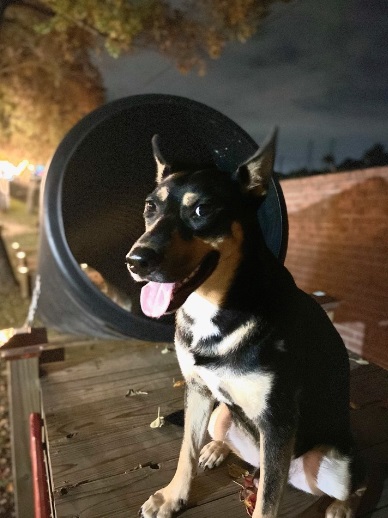
The power of service dogs, particularly those with specialized PTSD support training, is still being researched. But what we know so far is promising.
A recent study of veterans with PTSD found adding a service dog to usual treatment was associated with lower PTSD severity, anxiety, and depression.
One study found people with a mobility or medical service dog “exhibited significantly better psychosocial health including higher social, emotional, and work/school functioning” than those waiting for a dog.
The effects, specifically for veterans struggling with PTSD, are encouraging.
Another study found “wellbeing, sleep quality and PTSD related symptoms is improved by the presence of a service dog” for veterans and first responders with PTSD.
Trained service dogs can provide their handlers comfort, a calming presence, or a nudge to get out of spiraling thoughts. They also stand as a barrier between the handler and a stranger, wake up their handlers from nightmares, and offer non-judgmental companionship that gives the handler more confidence and purpose.
Robinson found all the benefits of a service dog and more in Rocket and knew immediately that he needed one of his own.
“He was such a loving dog,” Robinson remembers. “He could sense when I was sad and comfort me and even wake me up at night when I was having nightmares.”
Robinson finds a new calling training service dogs for veterans
With Rocket’s help, Robinson entered the world of training service dogs. He transformed his experiences with dog training in the Air Force into a new purpose — training dogs for veterans with PTSD and other disabilities.
“It’s amazing to see the lightbulb moment when a veteran is struggling with something that day, and they realize that they don’t have to do it alone anymore, and you see them relax,” Robinson says of his experiences with training service dogs for veterans.
Robinson now works with Buddy, a certified service dog he trained himself.
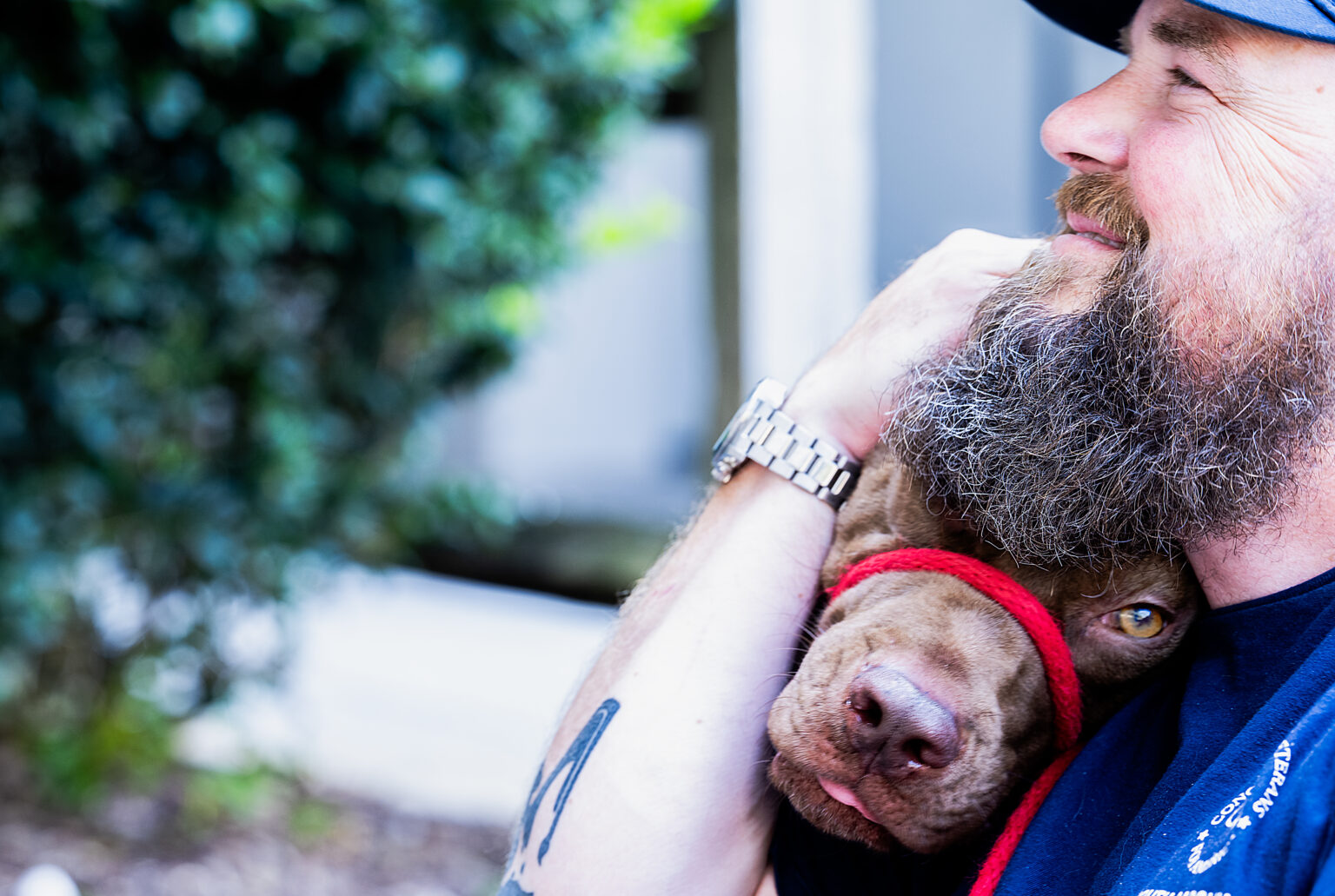
With his pup by his side, Robinson is helping other veterans with PTSD find their way
Robinson credits traditional therapy, his service dogs, and his work training dogs and handlers with his own healing. Accepting that he needed help and finding a new purpose were what spurred him to change.
“I think PTSD is kind of something you have to ‘choose’ to have,” Robinson says. “Nobody can help you if you deny it. I had a moment where I had to acknowledge it and choose to accept it and move forward.”
Moving forward has meant not just helping himself but using his skills and experiences to help others.
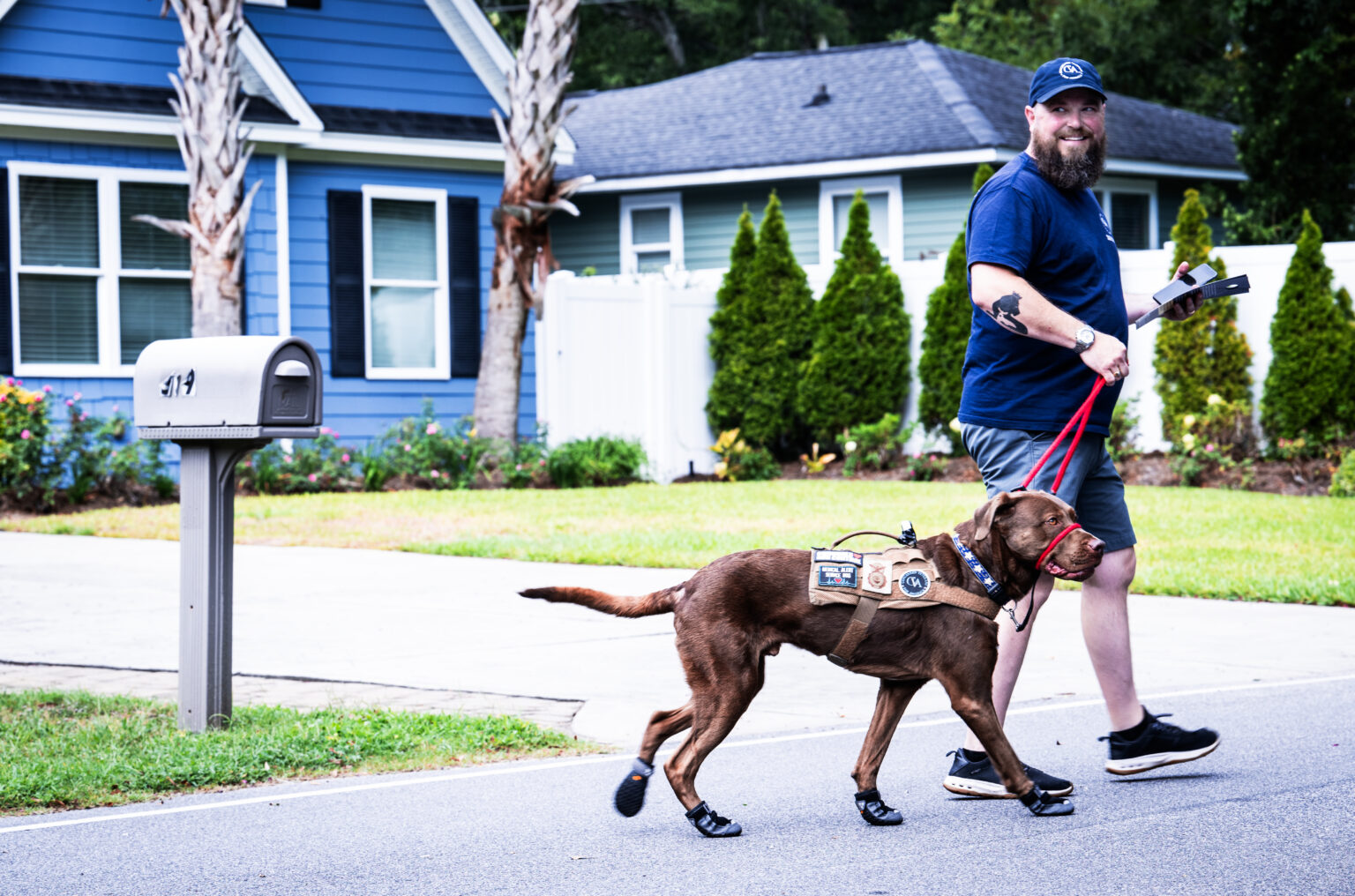
After leaving high-stress, high-tempo jobs in the military, veterans often are looking for their next purpose when they re-enter civilian life. Finding that purpose is the key to a smoother transition.
Veterans Day is an important time not just to honor those who served and sacrificed, but to recognize the veterans who continue to serve and find purpose being leaders in their communities.
Robinson found his purpose in training service dogs and teaching other veterans what he’s learned through his own experiences. He’s providing a solution to addressing veterans mental health care and how it can grow and evolve.
“Do not call me disabled; I will never accept that. Call me enabled, because in the midst of my personal hell, I have found a way. I have found a way to live a full and meaningful life. I have found a way to help others achieve the same success,” Robinson concludes. “We don’t have to carry the full load alone, and if that means that I have to spend a lifetime with a dog by my side, sounds like a great thing to me. Let’s choose life for ourselves.”
Concerned Veterans for America is part of the Stand Together community.
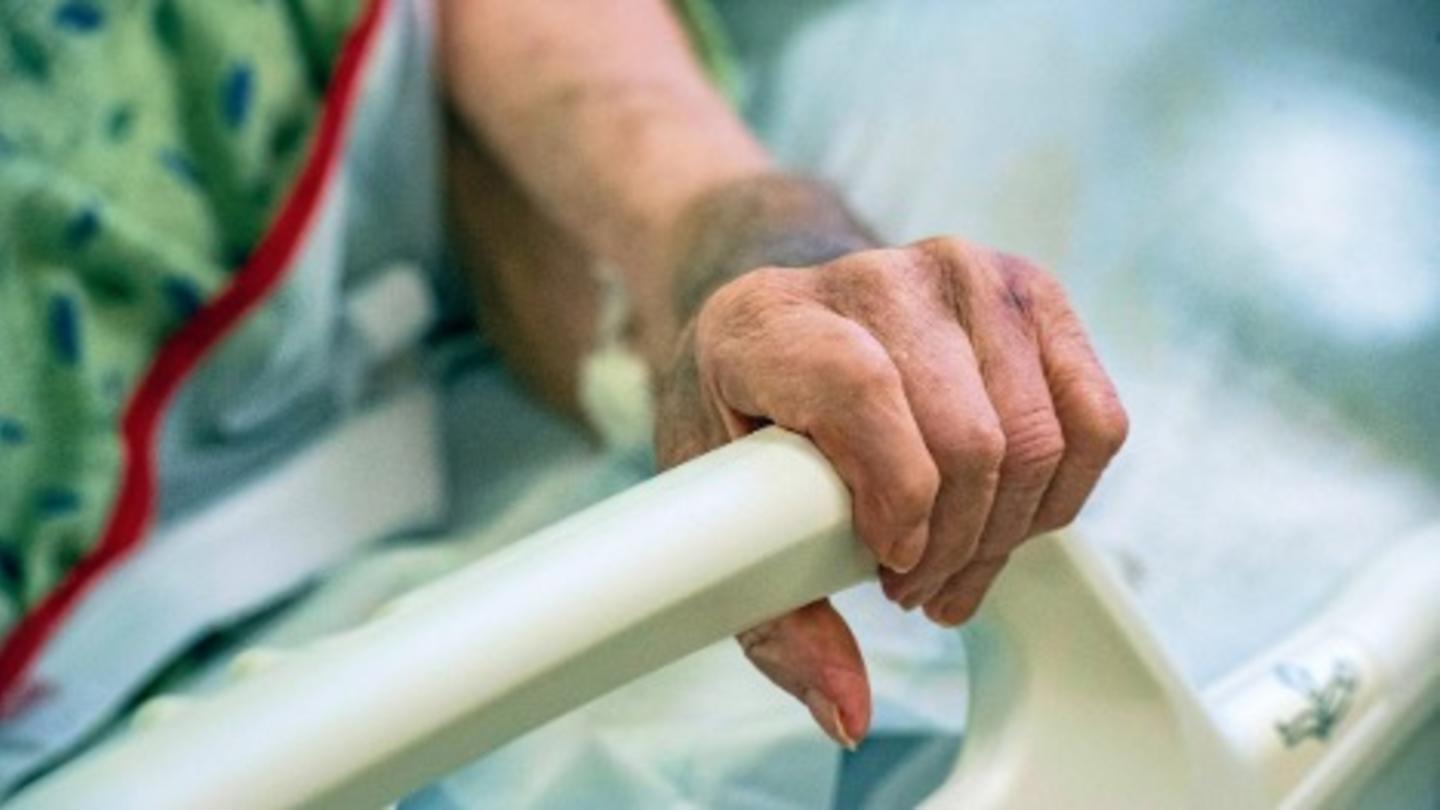
The MISSION Act was a huge win to empower veterans. But its execution by the VA has been lackluster.
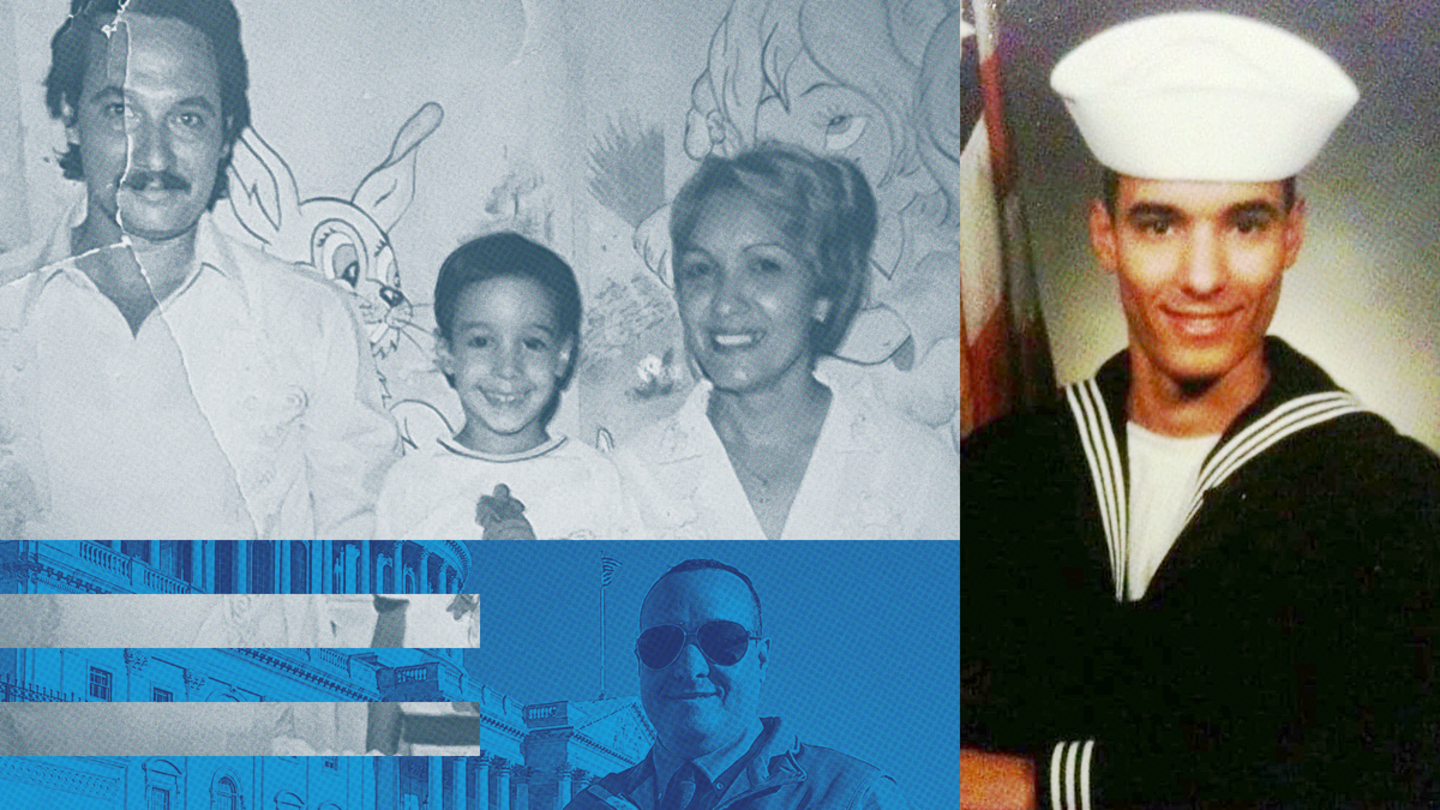
Edrys Leyva’s journey from escaping Cuba’s regime to Navy veteran and health care advocate.
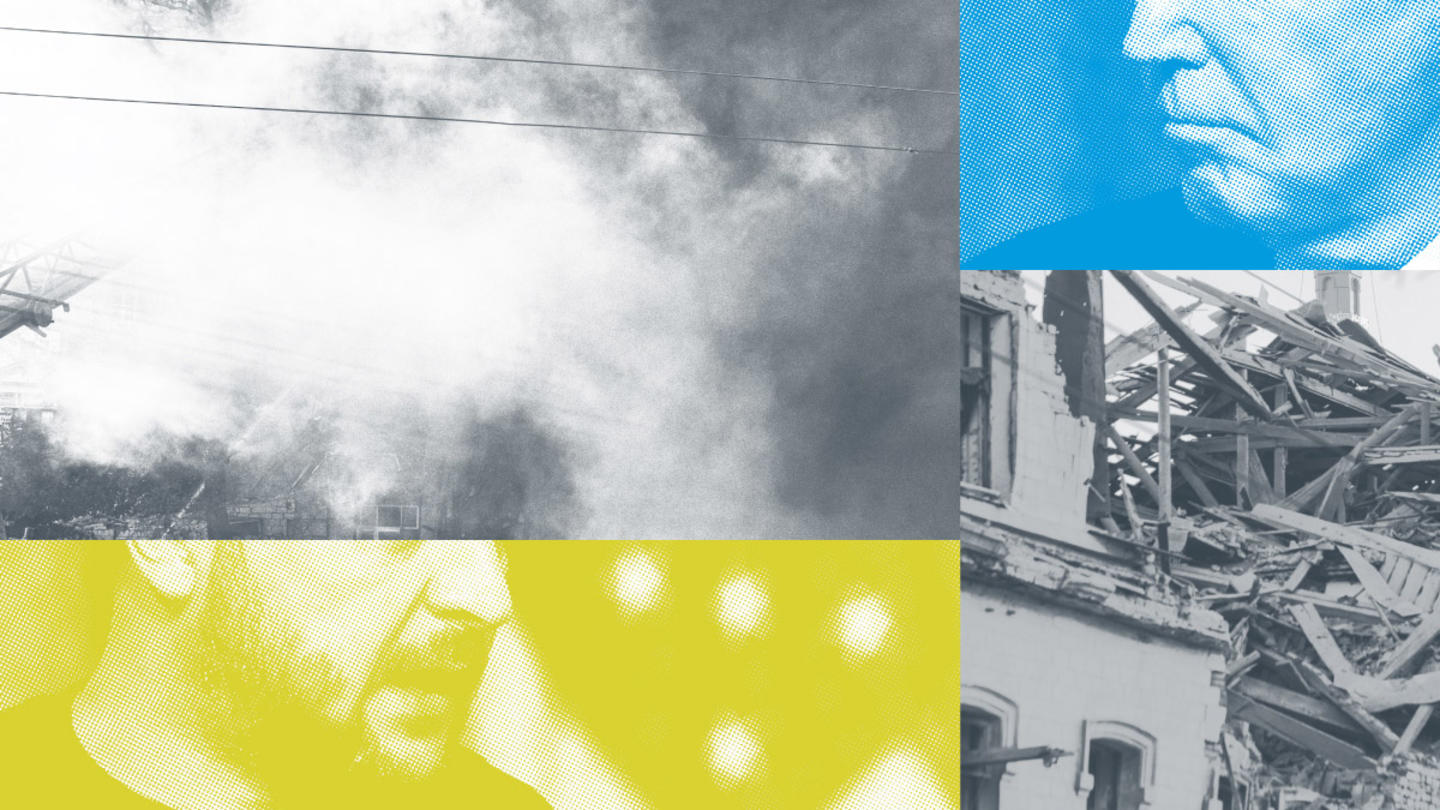
The Ukraine War is at an impasse. Here’s what you need to know.
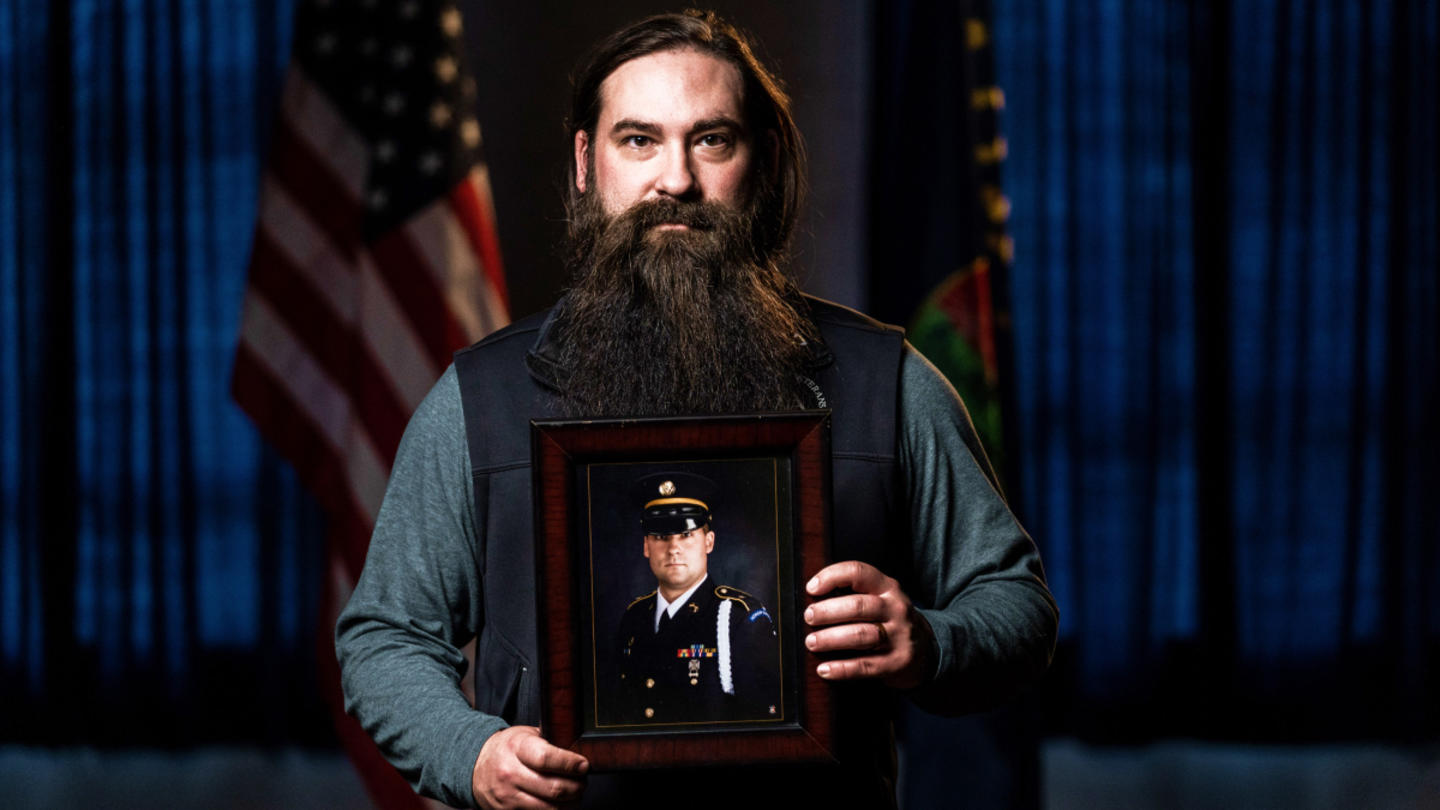
Army veteran Chris Enget has faced a lifetime of struggles and barriers. But his optimism and journey to heal himself and others are what define him.
